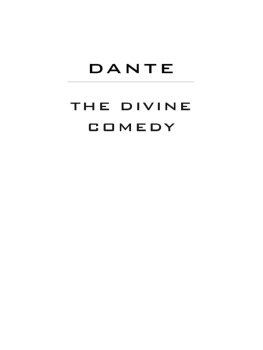James Cabell - The Cords of Vanity. A Comedy of Shirking
Here you can read online James Cabell - The Cords of Vanity. A Comedy of Shirking full text of the book (entire story) in english for free. Download pdf and epub, get meaning, cover and reviews about this ebook. genre: Prose. Description of the work, (preface) as well as reviews are available. Best literature library LitArk.com created for fans of good reading and offers a wide selection of genres:
Romance novel
Science fiction
Adventure
Detective
Science
History
Home and family
Prose
Art
Politics
Computer
Non-fiction
Religion
Business
Children
Humor
Choose a favorite category and find really read worthwhile books. Enjoy immersion in the world of imagination, feel the emotions of the characters or learn something new for yourself, make an fascinating discovery.

- Book:The Cords of Vanity. A Comedy of Shirking
- Author:
- Genre:
- Rating:5 / 5
- Favourites:Add to favourites
- Your mark:
- 100
- 1
- 2
- 3
- 4
- 5
The Cords of Vanity. A Comedy of Shirking: summary, description and annotation
We offer to read an annotation, description, summary or preface (depends on what the author of the book "The Cords of Vanity. A Comedy of Shirking" wrote himself). If you haven't found the necessary information about the book — write in the comments, we will try to find it.
The Cords of Vanity. A Comedy of Shirking — read online for free the complete book (whole text) full work
Below is the text of the book, divided by pages. System saving the place of the last page read, allows you to conveniently read the book "The Cords of Vanity. A Comedy of Shirking" online for free, without having to search again every time where you left off. Put a bookmark, and you can go to the page where you finished reading at any time.
Font size:
Interval:
Bookmark:
THE CORDS OF VANITY
A Comedy of Shirking
Revised and Expanded Edition
by JAMES BRANCH CABELL
with INTRODUCTION by WILSON FOLLETT
To
GABRIELLE BROOKE MONCURE
Plus sapit vulgus, quia tantum, quantum opus est, sapit.
AN INTRODUCTION
by Wilson Follett
Mr. Cabell, in making ready this second or intended edition of THE CORDS OF VANITY, performs an act of reclamation which is at the same time an act of fresh creation.
For the purely reclamatory aspect of what he has done, his reward (so far as that can consist in anything save the doing) must come from insignificantly few directions; so few indeed that he, with a wrily humorous exaggeration, affects to believe them singular. The author of this novel has been pleased to describe the author of this introduction as "the only known purchaser of the book" and, further, as "the other person to own a CORDS OF VANITY". I could readily enough acquit myself, with good sound legal proofs, of any such singularity as stands charged in this soft impeachmentand that without appeal to The Cleveland Plain Dealer of eleven years ago ("slushy and disgusting"), or to The New York Post ("sterile and malodorous worse than immoraldull"), or to Ainslee's Magazine ("inconsequent and rambling rather nauseating at times"). These devotees of the adjective that hunts in pairs are hardly to be discussed, I suppose, in connection with any rewards except such as accrue to the possessors of a certain obtuseness, who always and infallibly reap at least the reward of not being hurt by what they do not knowor, for that matter, by what they do know. He who writes such a book as THE CORDS OF VANITY is committing himself to the supremely irrational faith that this dullness is somehow not the ultimate arbiter; and for him the pronouncements of this dullness simply do not figure among either his rewards or his penalties. So, it is not exactly to these tributes of the press that one reverts in noting that THE CORDS OF VANITY, on its publication eleven years ago, promptly became a book which there werealmostnone to praise and very few to love. After all, its author's computation of that former audience of hishis actual individual voluntary readers of a decade agoappears to be but slightly and pardonably exaggerated on the more modest side of the fact. If there were a Cabell Club of membership determined solely by the number of those who, already possessing THE CORDS OF VANITY in its first edition, recognize it as the work of a serious artist of high achievement and higher capacity, I suspect that the smallness of that club would be in inordinate disproportion to everything but its selectness and its members' pride in "belonging".
Be that as it may, the economist-author, on the eve of his book's emergence from the limbo of "out of print", prefers that it come into its redemption carrying a foreword by someone who knew it without dislike in its former incarnation. No contingent liability, it seems, can dissuade Mr. Cabell from this preference. An author who once elected to precede a group of his best tales with an introduction eloquently setting forth reasons why the collection ought not to be published at all, is hardly to be deterred now by the mere inexpediency of hitching his star to a farm-wagon. His own graciously unreasonable insistence must be the excuse, such as it is, for the present introduction, such as it is. If there may be said to exist a sort of charter membership in Mr. Cabell's audience, this document is to be construed as representing its very enthusiastic welcome to the later and vastly larger elective membership.
And if, weighed as such a welcome, it proves hopelessly inadequate, at least it provides a number of possible compensations by the way. For instance, that New York World critic who damned the book but praised its frontispiece of 1909, has now a uniquely pat opportunity to balance his ledger by praising the book and damning this foreword, which, more or less, replaces the frontispiece. Similarly, the more renowned critic and anthologist who so well knows the "originals" of the verses in From the Hidden Way, can now render poetically perfect justice to all who will care by perceiving that both the earlier edition of this book and the author of this foreword are but figments of Mr. Cabell's slightly puckish invention.
But these pages must not be, like those which follow, a comedy of shirking. They will have flouted a plain duty unless they speak of the sense and the degree in which this novel, during the process of reclaiming it, has been actually recreated. Perhaps the matter can be packed most succinctly into the statement that Mr. Cabell's hero has been subjected to such a process of growth as has made him commensurate in stature with the other two modern writers of Mr. Cabell's invention. As The Cream of the Jest is essentially the book of Felix Kennaston and Beyond Life that of John Charteris, so THE CORDS OF VANITY is essentially the book of Robert Etheridge Townsend. Now, this Townsend has accomplished a deal of growing since 1909. By this I do not mean that he is taken at a later period of his own imagined life, or that he fails to act consonantly with the extreme youth imputed to him: I mean that he is the creation of a more mature mind, a deeper philosophy, a more probing insight into the implications of things. A given youth of twenty-five will be very differently interpreted by an observer of thirty and by the same observer at forty, very much as a given era of the past will be understood differently by a single historian before and after certain cycles of his own social and political experience. The past never remains to us the same past; it grows up along with us; the physical facts may remain admittedly the same, but our understanding accents them differently, finds more in them at some points and less at others. So Robert Etheridge Townsend remains an example of that special temperament which, being unable to endure the contact of unhappiness, consistently shirks every responsibility that entails or threatens discomfort; and the truth about him, taking him as an example of just that temperament, is still inexorably told. But his weakness as a man becomes much more tolerable in this second version, because it is much more intimately and poignantly correlated with his strength as an artist. One is made to feel that he, like Charteris, may the better consummate in his art the auctorial virtues of distinction and clarity, beauty and symmetry, tenderness and truth and urbanity, precisely because his personal life is bereft of those virtues. Less than before, the accent is on the wastrel in Townsend; more than before, it is on the potential creator of beauty in him. The earlier readers will hardly count it as a fault that Mr. Cabell has contrived to make his novel, without detriment to any truth whatsoever, a far less unpleasant book. Sardonic it still is, by a necessary implication, but not wantonly, and with a mellowness. The irony, which at its harshest was capable of rasping the nerves, has become capable of wringing the heart.
Other reasons there are, too, for holding that THE CORDS OF VANITY is certain to make its second appeal to a many times multiplied audience. Since divers momentous transactions of the years just gone, the whole world stands in a moral position extraordinarily well adapted to the comprehension of just such a comedy of shirking; and especially the world of thought has received a powerful impulsion toward the area long occupied by Mr. Cabell's romantic pessimism. There is perhaps somewhat more demand for satire, or at least a growing toleration of it. Moreover, by sheer patience and reiteration Mr. Cabell has procured no little currency for some of his most characteristic ideas. Chivalry and gallantry, as he analyzes them, are concepts which play their part in the inevitable present re-editing of social and literary history.
Font size:
Interval:
Bookmark:
Similar books «The Cords of Vanity. A Comedy of Shirking»
Look at similar books to The Cords of Vanity. A Comedy of Shirking. We have selected literature similar in name and meaning in the hope of providing readers with more options to find new, interesting, not yet read works.
Discussion, reviews of the book The Cords of Vanity. A Comedy of Shirking and just readers' own opinions. Leave your comments, write what you think about the work, its meaning or the main characters. Specify what exactly you liked and what you didn't like, and why you think so.


